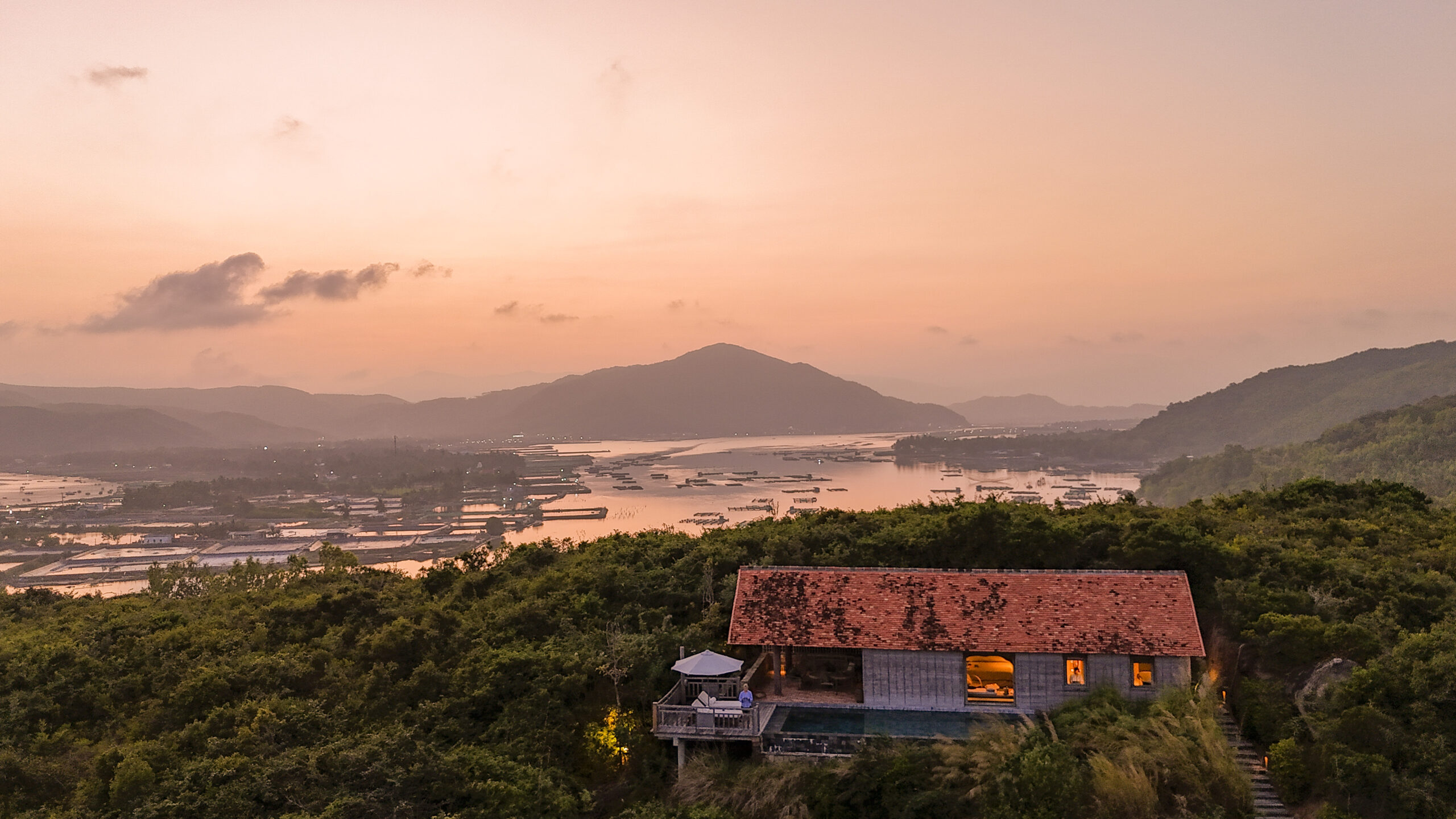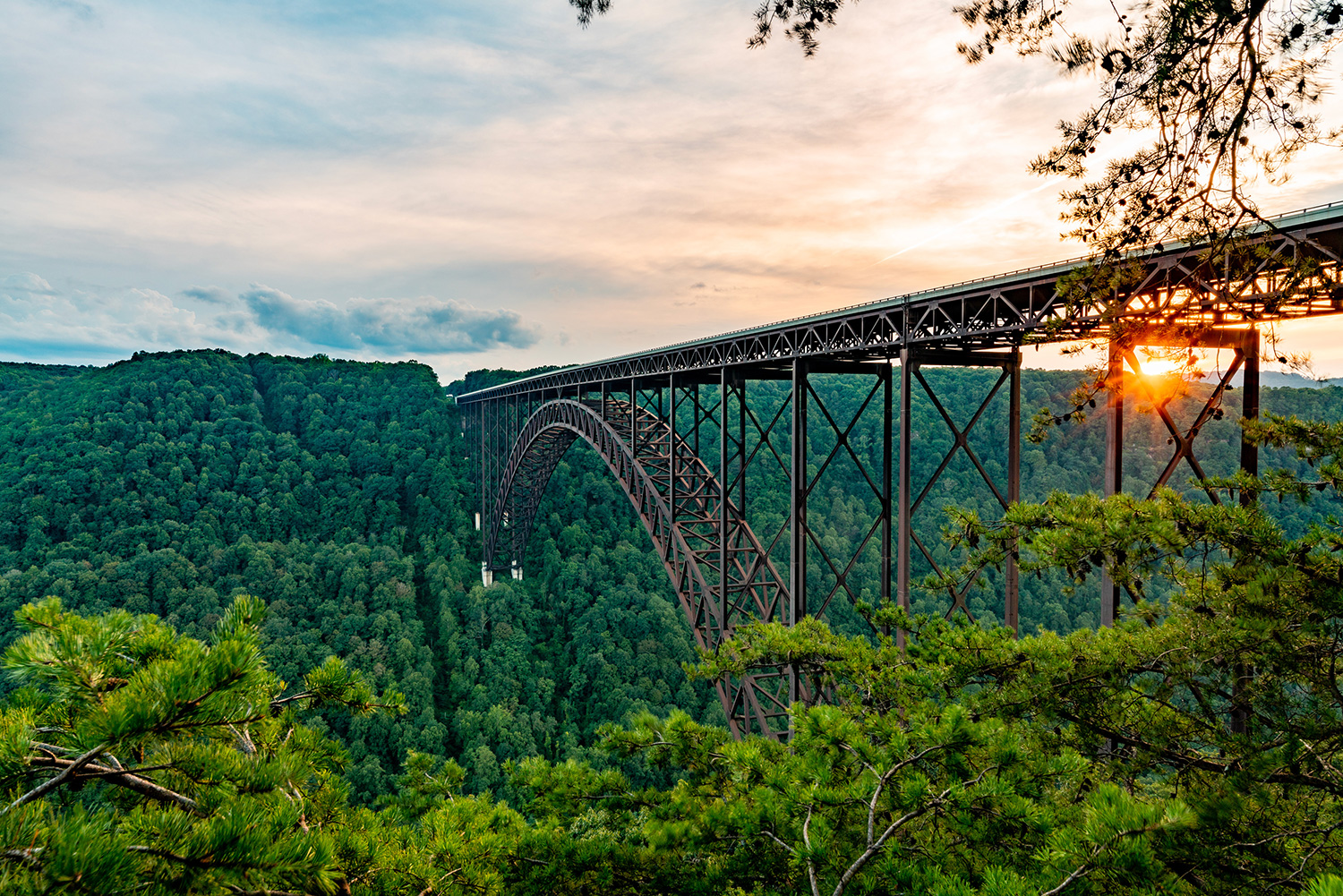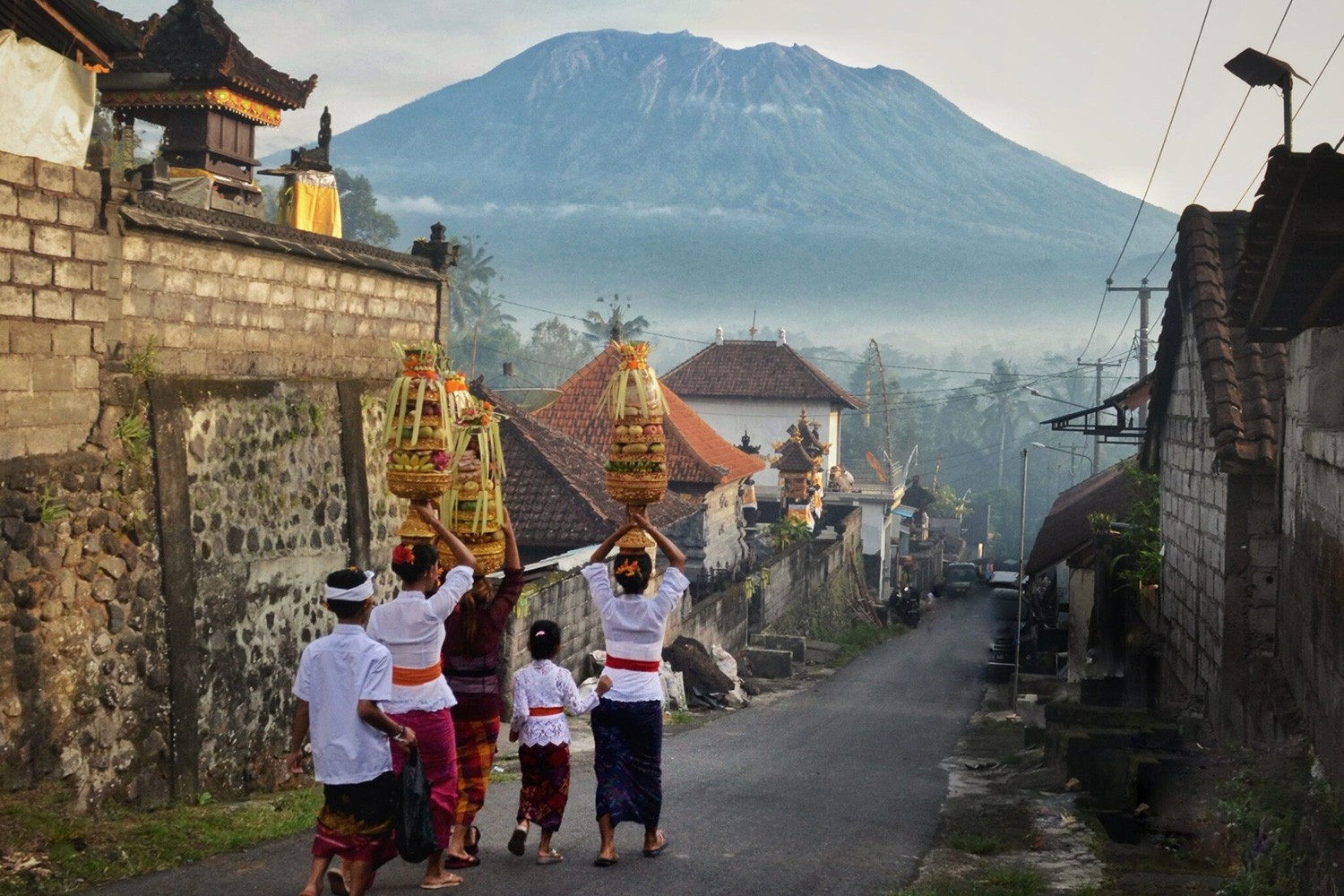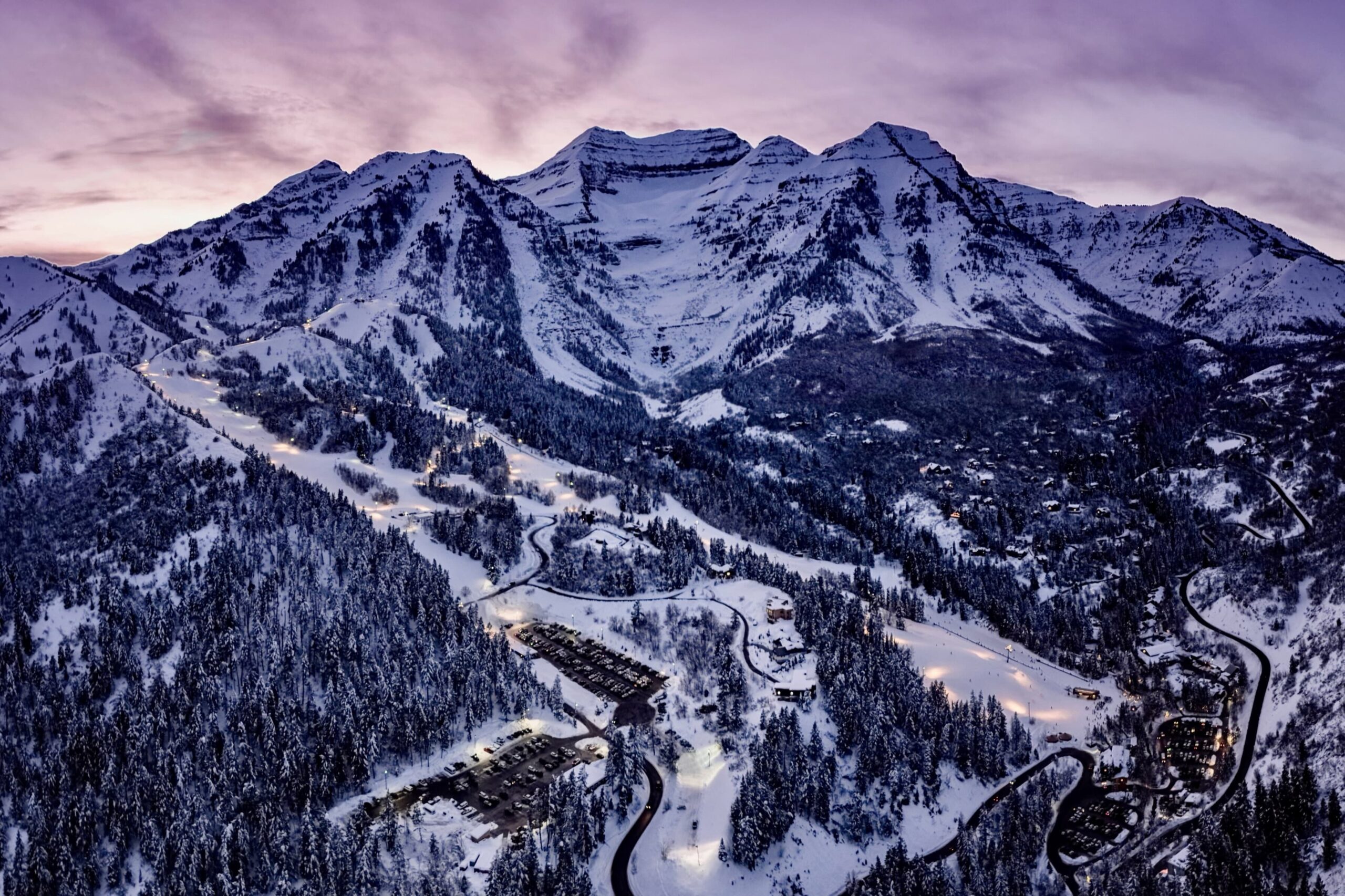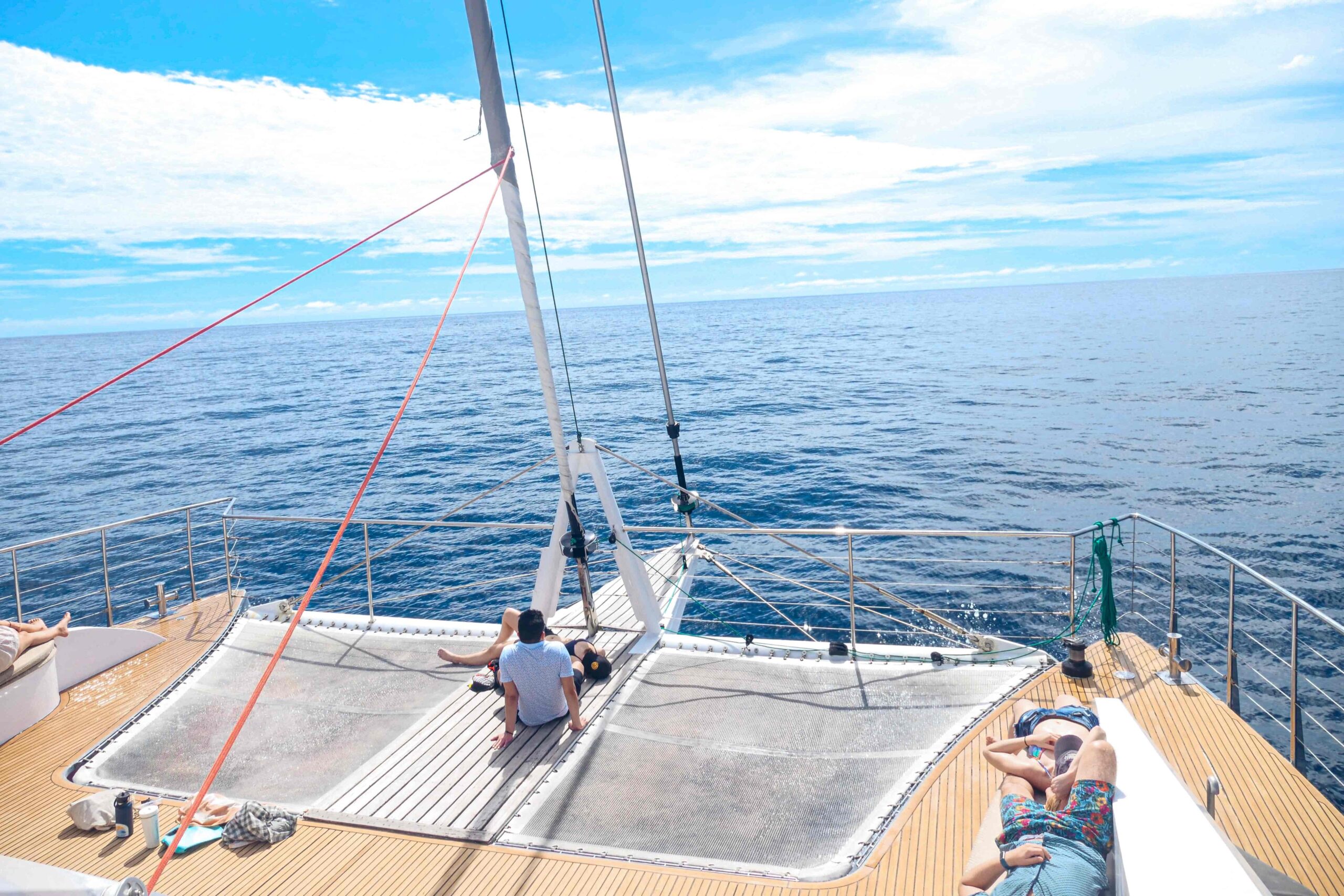NORTH STARS:
Carbon Footprint
Waste Management
Energy Efficiency
“Zannier Hotels Bãi San Hô is ideal for design buffs who love understated organic luxury evocative of place and want to relax on one of the remotest stretches of beach in Vietnam.”
The Azure Road Take
Zannier Hotels, the Belgian hospitality group behind Le Chalet in Megève, Haute-Savoie as well as far-flung resorts in Namibia and Cambodia, debuted its fifth property, and first in Vietnam in 2020. Located on a secluded peninsula in the Phu Yen province, Zannier Hotels Bãi San Hô is a 245-acre beach resort ensconced in remote, castaway scenery.
Composed of 73 villas spread across rice paddy fields, lush hilltops, and beachfront sites, every inch of space offers a master class in attention to understated detail. From the paddy field villas, hill pool villas, to beach pool villas, the entire property is designed in sympathy to its landscape through modern takes on traditional design. Though guests might linger in the discreet privacy of their accommodation, beautifully considered common spaces including the thatched huts of beachfront bar and restaurant Làng Chài’s and panoramic views from the resort’s hilltop focal center, Nhà Ở, inevitably draw guests out of hiding.
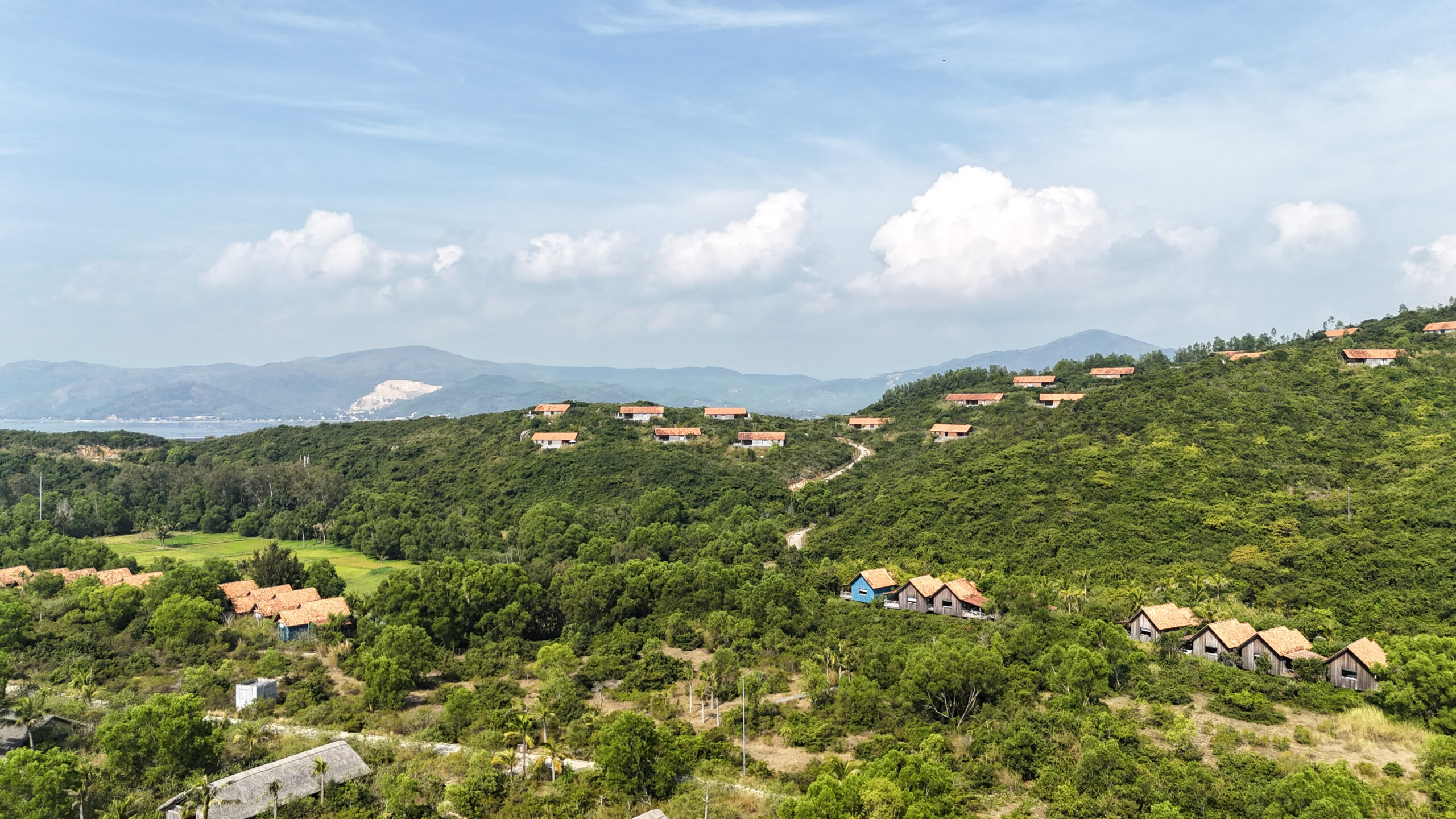
Drone capture of the resort. Courtesy of Lauren Mowery.
Who’s it for?
Design buffs who love understated organic luxury evocative of place. Couples seeking romance, relaxation, and privacy. Families seeking space for their children to play, facilitated by connecting villas, as well as a children’s center featuring a babysitter during high season.
Sustainability Chops
From the start, Zannier Hotels Bãi San Hô was designed to limit its environmental impact while promoting social responsibility. After two years in operation, the hotel earned Green Globe Certification in 2023. While numerous certification programs have popped up around the world, leading some travelers to question which ones hold legitimacy, Green Globe has developed its standards over the course of thirty years by aligning with the United Nations 17 Sustainable Development Goals. A review of the hotel’s sustainability statement demonstrates competencies in the following areas: Energy Efficiency, Waste Management, Water Management, Ecosystem Conservation, and Community Support, among others.
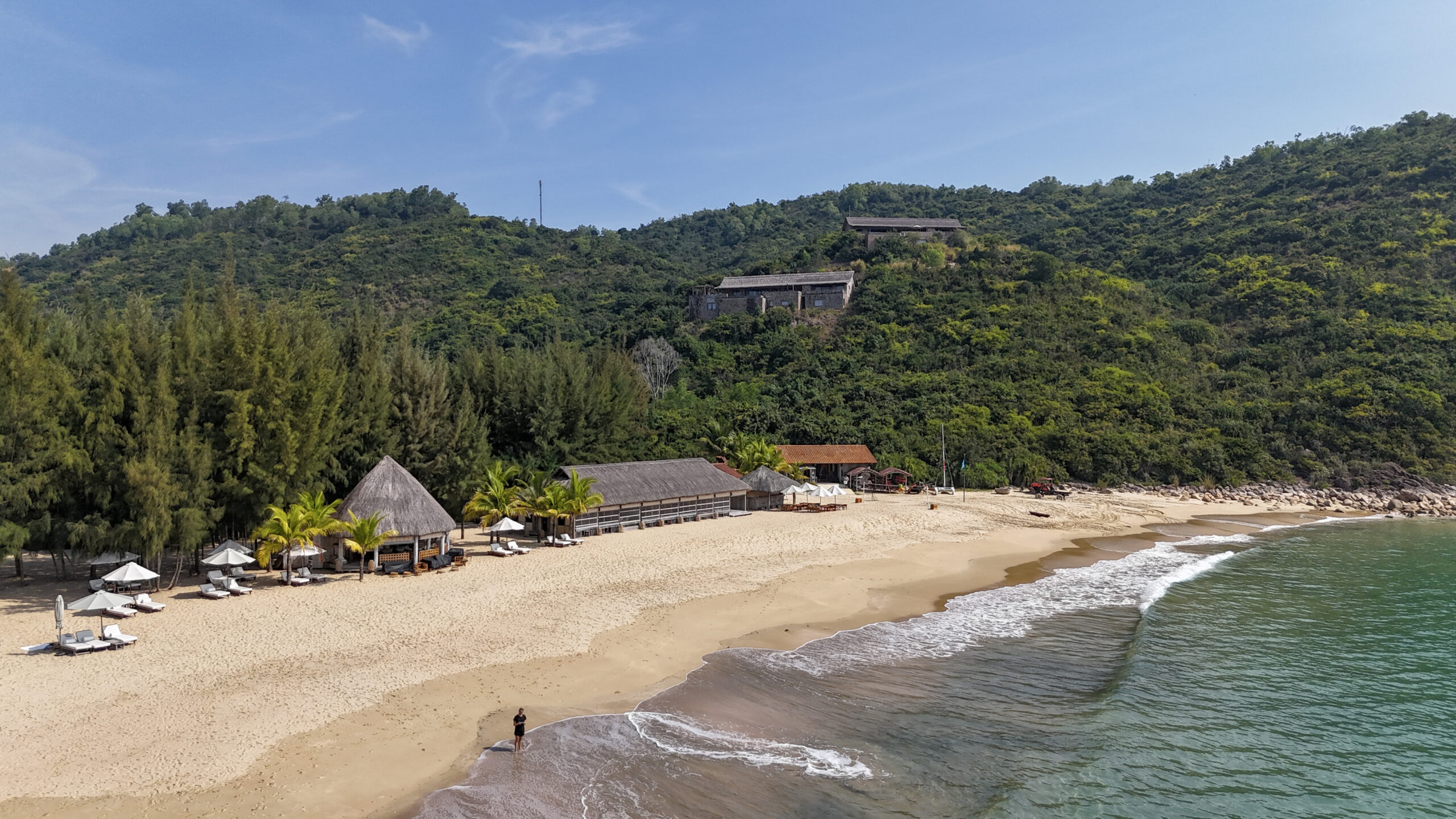
Drone capture of the beach. Courtesy of Lauren Mowery.
Location
Located on a secluded peninsula in the Phu Yen province, the hotel is one of only two luxury resorts within 30-minutes of each other. In other words, it’s not a densely packed area for tourism; rather, it’s relatively unknown to international travelers with much of the region still populated by local fishing villages, as evident from the heavily fished and farmed waters seen along the coastline. Without an international airport nearby, most visitors fly from Saigon or Hanoi to Quy Nhon and organize a transfer to the resort, about 75-minutes south. Alternatively, travelers in Hoi An can book passage on the Vietage, a private luxury carriage attached to the back of a regional train. The Vietage is the brainchild of Bill Heinecke, founder of the Anantara Hotel group, which he conceived as a charming way to transport high end travelers to this undiscovered region. (Anantara has a hotel just north of Zannier called Anantara Quy Nhon Villas.)
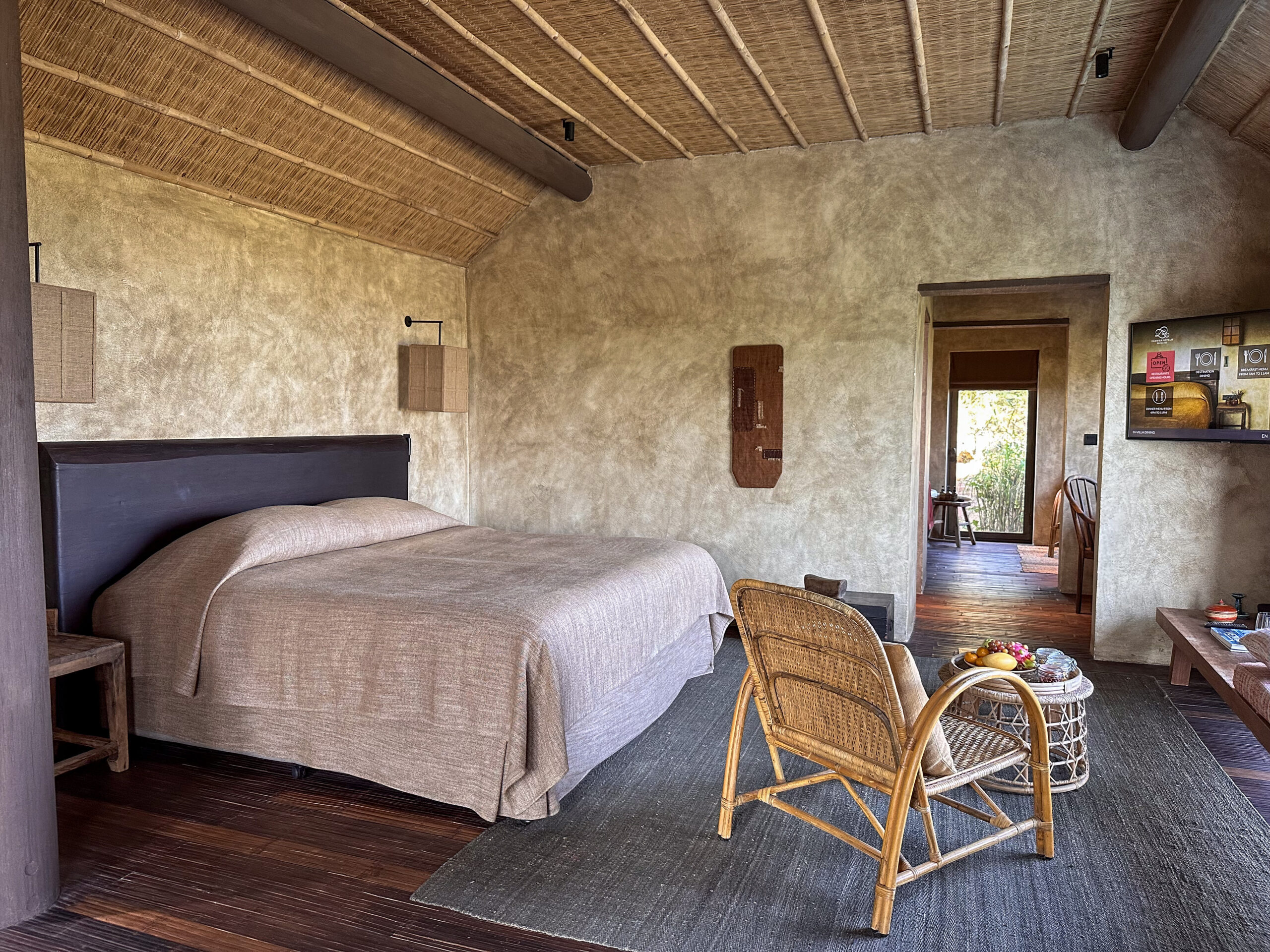
Interior of a hill villa. Courtesy of Lauren Mowery.
Rooms
The resort’s 73 pool villas offer complete seclusion, each abode tucked into one of four settings: paddy fields, hilltop perch, grand bay, and beachfront. The villas draw inspiration from three distinct Vietnamese architectural styles including fisherman’s huts found in the floating villages nearby, mountain longhouses inspired by the Rade people of the Central Highlands, and thatched roof Chăm family homes on the beach. Inside, décor feels rustic but elevated through muted organic textiles that exude a calming warmth through earth tone color palettes. Of course, don’t let design nods to traditional Vietnamese architecture fool you into thinking these villas are anything less than high end, as each features its own plunge pool, alfresco terrace, and outdoor shower. Villas were ecologically built using age-old techniques while creating a more contemporary way of living.
The company’s owner, Arnaud Zannier, takes a hands-on approach to each of the properties he develops. In the case of Bãi San Hô, Zannier spent several months exploring the lengths of Vietnam, learning about the different ways of life, local customs, and traditional construction techniques before adapting them for Zannier Hotels Bãi San Hô. Natural local materials such as wood, stone, bamboo, and thatch form an integral part of the overall aesthetic, while décor incorporates raw silk, woven rattan, and hessia, with artifacts accumulated from antique markets and shops around Southeast Asia. Locally made furniture is handcrafted from reclaimed wood and bamboo.
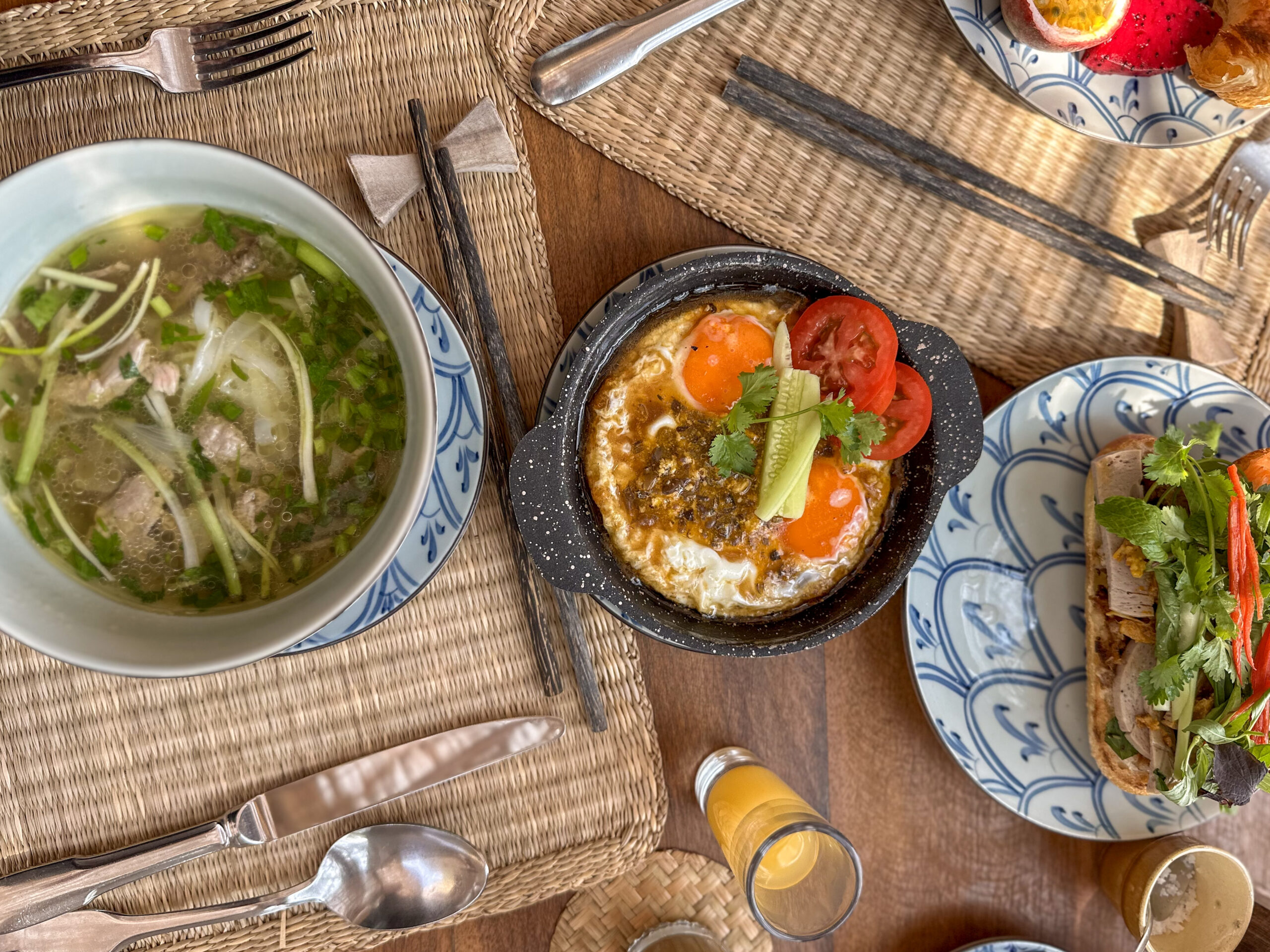
Gorgeous breakfast dishes. Courtesy of Lauren Mowery.
Food and Drink
Given the property’s captive audience, it would be easy for the kitchen to skimp on quality. Indeed, many global properties are notorious for their sub-par, overpriced dining options. This is resoundingly not the case at Zannier Hotel, which offers several dining concepts steeped in the cuisine of the country, executed at a high level for relatively reasonable cost.
Three unique dining experiences touch on Vietnamese cuisine: Bà Hai, open during high season or periods of fuller occupancy, offers an authentic immersion into Grandma Hai-style regional cooking with views of the gardens and rice paddies. Guests book a cooking class in this 40-foot-tall bamboo and wood structure elevated on stilts. On the beach, Làng Chài’s offers a boho-chic grill serving fresh caught seafood and lighter dishes like coconut and jicama salad and prawn spring rolls. Nhà Ở, the heartbeat to the resort, offers all-day dining on Southeast Asian and international cuisine. The breakfast, however, is spectacular. Local cooks prepare regional dishes live while the breakfast buffet offers fresh tropical fruit, a banh mi bar, and a la carte menu at the table for cooked-to-order noodle soups like beef noodles and beef pho as well as eggs.
At night, a stylish cocktail bar sits off the main dining room, serving a mix of international and regionally-inspired drinks, beer, and wine, while a selection of teas, fruit juices, and infusions are available for those looking for non-alcoholic alternatives.
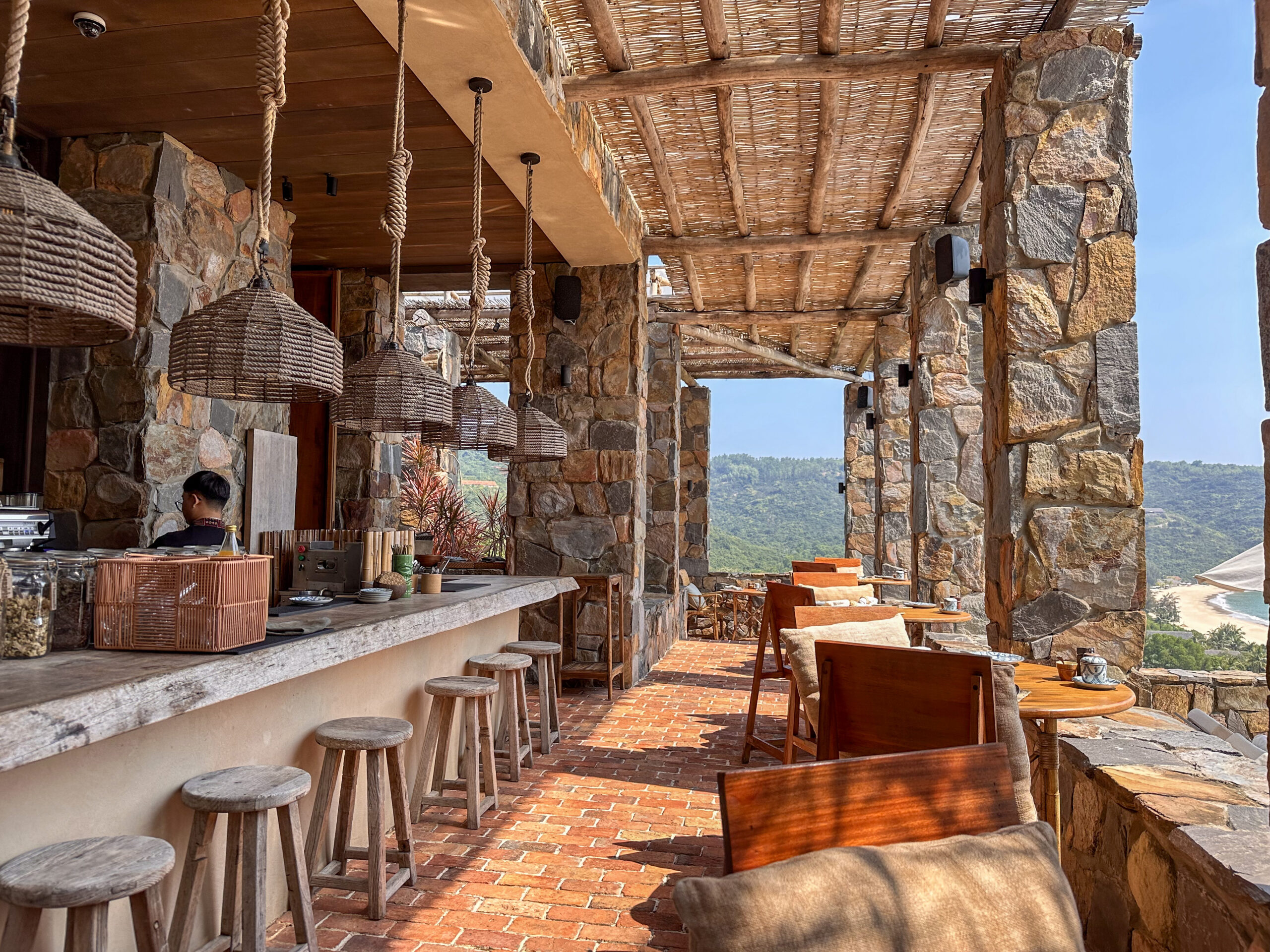
The terrace in the morning. Courtesy of Lauren Mowery.
Staff and Service
Despite the hotel’s location in a relatively undeveloped region for tourism—the most accessible airport is Quy Nhon in Binh Dinh Province – the bohemian environment features bend-over-backwards service that’s ready for any request, whether tips for visiting the nearby fishing village on a mountain bike, or the best spot for sunset views. Rumors about the challenges training residents for high-end hospitality, whispered at other resorts, don’t apply at Zannier. Of course, the service isn’t always polished, but it’s 100 percent sincere. Expect to be asked where you’re from, how you’re enjoying Vietnam, and engage in genuine pleasantries with the team.
Spa and Swim
Though every villa features a private plunge pool, the beach is superb with gentle swimmable water in a private crescent-shaped bay. The main building features a community pool just off the terrace, offering a few loungers and umbrellas.
A well-appointed, air-conditioned gym, yoga room, tennis courts, a padel court, and wellness center are available throughout the day. The Hoa Sen Spa offers treatments and rituals designed around five spiritual elements: Air, Fire, Water, Earth and Spirit. Water sports include surfing, wakeboarding, snorkeling, and kayaking. Scuba diving can be arranged at the front desk.
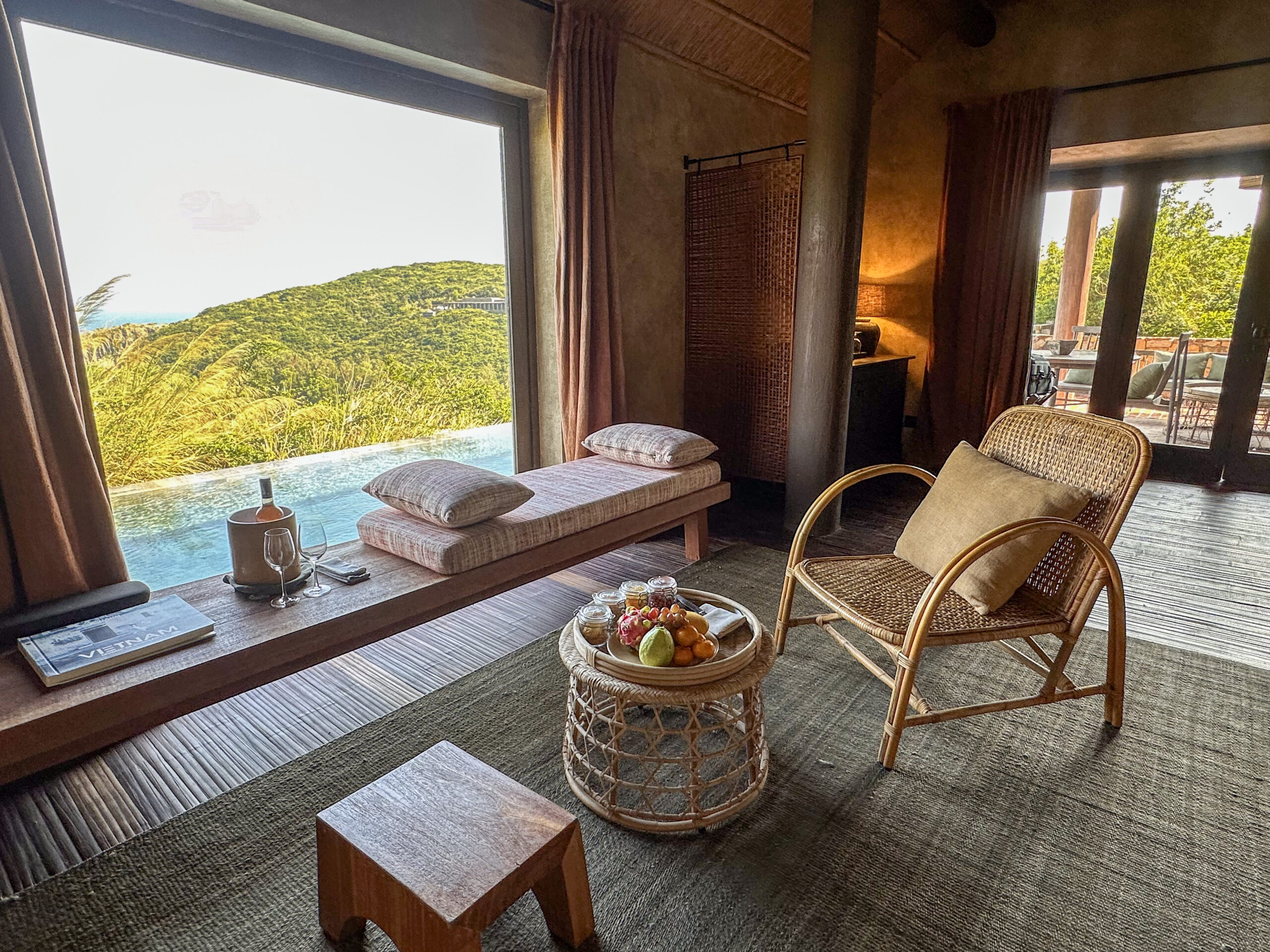
Custom Caption For This Image
Accessibility
To accommodate mobility issues, guests are transported around the property in golf carts. Around 15% of the villas have flat access ramps for wheelchair users, notably the paddy field and beach residences and the 3-bedroom villa.
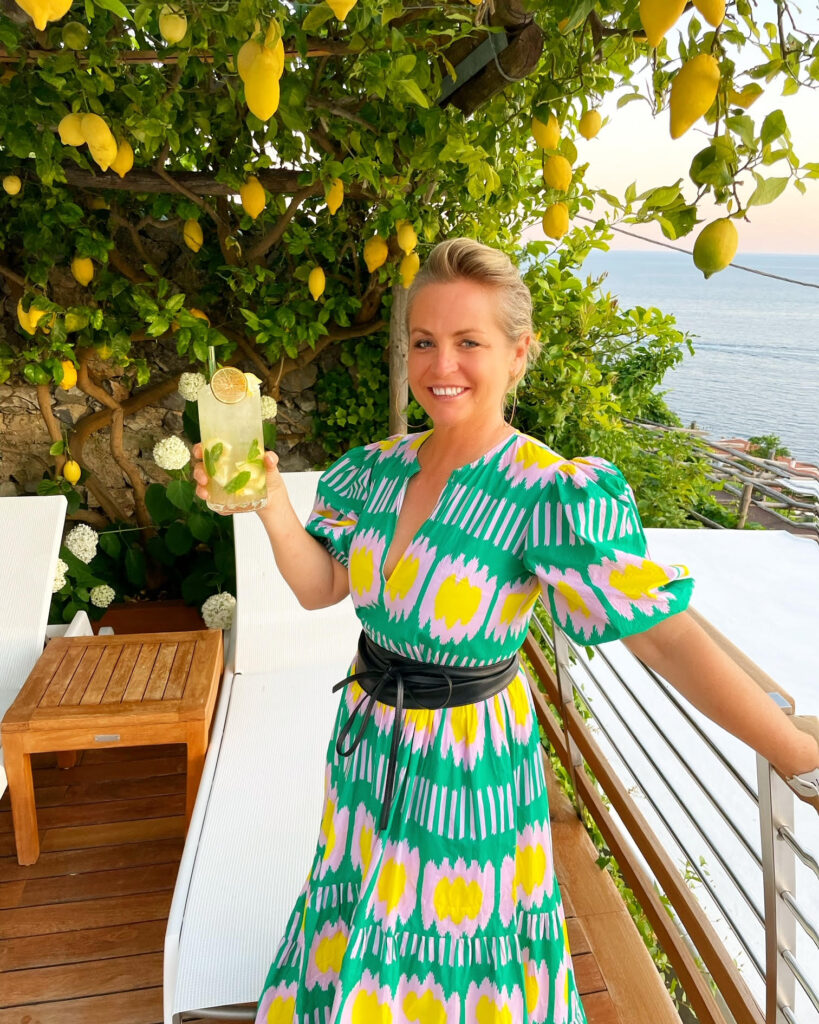
Founder and CEO of Azure Road, Lauren Mowery is a longtime wine, food, and travel writer. Mowery continues to serve on Decanter Magazine’s 12-strong US editorial team. Prior to joining Decanter, she spent five years as the travel editor at Wine Enthusiast. Mowery has earned accolades for her writing and photography, having contributed travel, drinks, food, and sustainability content to publications like Food & Wine, Forbes, Afar, The Independent, Saveur, Hemispheres, U.S. News & World Report, SCUBA Diving, Plate, Chef & Restaurant, Hotels Above Par, AAA, Fodors.com, Lonely Planet, USA Today, Men’s Journal, and Time Out, among others.
Pursuing her Master of Wine certification, she has also been a regular wine and spirits writer for Tasting Panel, Somm Journal, VinePair, Punch, and SevenFifty Daily. Mowery is a graduate of the University of Virginia and Fordham Law School, and she completed two wine harvests in South Africa.
Follow her on Instagram @AzureRoad and TikTok @AzureRoad
North Stars: Carbon Footprint, Energy Efficiency, Waste Management


